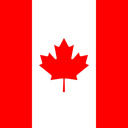
In the eyes of the United States, Canada has a drug problem.
Granted, this isn't an illegal narcotics or drug cartel problem. But in the world of international trade, the problem is pretty bad. In fact, it's serious enough to land Canada on the "Watch List" in the U.S. Trade Representative's "Special 301 Report"?a report released annually that evaluates the intellectual property rights protection and enforcement of the United States's trading partners.
So how exactly did Canada end up on this list? It boils down to this: The United States and the world's major multinational pharmaceutical companies are unhappy with the way Canada interprets its drug patent laws.
"Canada is an outlier," says Patrick Kierans, a senior partner at Norton Rose Fulbright in Toronto who has represented multinational pharmaceutical companies. "It has a higher standard for drug patents than anywhere else in the world."
Defenders of Canada's patent system insist that this is not true. Other countries also have standards that differ from that of the U.S., they say, and patent systems worldwide are far from unified. Nevertheless, Canada is on the USTR's "Watch List"?a place usually reserved for developing economies.
This is actually an upgrade from years past, when Canada sat on the U.S.'s "Priority Watch List," keeping company with such notorious big-time IP infringers as China and Russia. The basis for Canada's lowly status in the eyes of the U.S. for four consecutive years had been its copyright laws and its commercial-scale trafficking of counterfeit products. But with passage in 2012 of Canada's Copyright Modernization Act, and the introduction this year of Canada's Counterfeit Products Act, these problems are deemed well on the way to being fixed.
Canada's drug patents, however, are another story. In its report, the USTR writes that the U.S. has "serious concerns" about Canada's treatment of pharmaceutical patents. It criticizes the country's administrative process for regulatory approval of pharmaceutical products, which curbs the right to appeal. And more pointedly, it expresses concern about the impact of Canada's "heightened" utility requirement for patents.
That utility requirement, in fact, has Big Pharma up in arms. It has prompted an international trade dispute that not only challenges a sovereign nation's legal system but also could end up costing Canadian taxpayers as much as $100 million. It raises broader questions that arise in a world where the value of intellectual property is rapidly outpacing that of real property, but where patent systems still vary from country to country.
In November of last year, Eli Lilly and Company notified the government of Canada that it intends to challenge the country's standards for granting patents, claiming that they violate provisions of the North American Free Trade Agreement. The company launched its attack after Canadian courts invalidated Lilly's patent for Strattera, a drug used to treat Attention Deficit Hyperactivity Disorder (ADHD). In its formal filings, it demanded $100 million in compensation from Canada, saying that is the amount the patent invalidation cost the company.
So how is an individual company, albeit the tenth-largest pharmaceutical corporation in the world, able to demand $100 million in compensation from a nation of 35 million people? The drugmaker filed what is known as an investor-state dispute, which, under provisions of some international trade treaties, allows companies to initiate challenges against foreign governments.
Subscribe to Corporate Counsel
Source: http://www.law.com/corporatecounsel/PubArticleCC.jsp?id=1202611865529&rss=rss_cc
mexico news the talented mr ripley weather new orleans orcl the hartford illinois primary 2012 michael bay
No comments:
Post a Comment
Note: Only a member of this blog may post a comment.